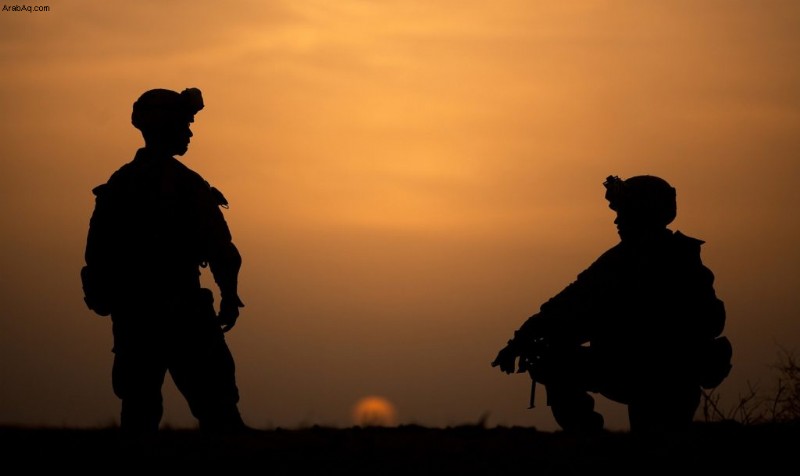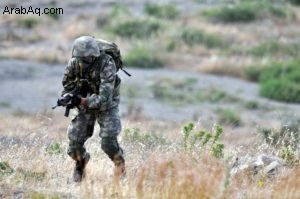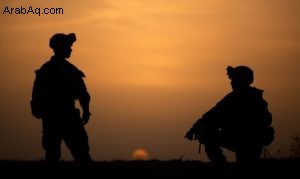
يُعرف الجيش بتعاطي المخدرات واستخداماته بسبب ضغوط الحرب الشديدة وساعات العمل الطويلة وعوامل أخرى. يتوفر الكحول داخل القواعد العسكرية وخارجها ، وعادة ما يكون بخصم على المنشآت العسكرية.
لقد توصلت الدراسات إلى أن أفراد الخدمة الذين تم نشرهم في العراق وأفغانستان وخاضوا القتال ، معرضون لخطر زيادة تعاطي الكحول ، والإفراط في شرب الكحول ، والمشكلات المتعلقة بالكحول [1].
يفترض الباحثون أن الزيادة في تعاطي الكحول ترجع إلى تحديات الحرب ، واستخدام الكحول كوسيلة للتعامل مع الأحداث المجهدة والصدمة ، والتداوي الذاتي مع مشكلات الصحة العقلية.
حقائق عن الجيش
لا يشجع الجيش بشدة تعاطي الكحول والمخدرات غير المشروعة وتعاطي التبغ من قبل أفراد الجيش بسبب آثاره السلبية على الصحة الجسدية والعقلية ، فضلاً عن مستويات الأداء. يعتبر تناول الكحول عند الرجال 14 مرة أو أكثر في الأسبوع و 7 للنساء مفرطًا [1].
في الجيش ، يمكن لأي شخص الالتحاق بالخدمة الفعلية أو الاحتياط على أي مستوى من فروع القوات المسلحة. هذه هي الجيش والبحرية وسلاح مشاة البحرية والقوات الجوية. بالنسبة لجنود الاحتياط ، يمكنهم أيضًا الانضمام إلى الحرس الوطني للجيش.
هناك مجموعات مختلفة داخل هذه الفروع تعتمد على ما إذا كنت في الخدمة الفعلية أو الاحتياطية ، والتي تحددها وظيفتك أو تدريبك. عادة ما يكون أولئك الذين هم في الخدمة الفعلية أصغر من نظرائهم في الاحتياط. 65٪ من الأفراد في الخدمة الفعلية يبلغون من العمر 30 عامًا أو أقل ، وأكثر من 40٪ من العاملين الفعليين والاحتياطيين لديهم أطفال [1].
أظهرت دراسة أجريت في عام 2011 أن ارتفاع معدلات مستويات الكحول أدى إلى زيادة المشكلات المتعلقة بالكحول. Another study found that female spouses of military members who were deployed reported almost 4% had used illicit drugs, 12% engaged in binge drinking and 27% reported tobacco use [1].
Stress and Connected Reasons
Many researchers hypothesize that the considerable strain on military families, multiple deployments can increase the stress levels both individually and within the community.
Deployments can be connected to increased mental health issues for family members, decreased healthy eating patterns, and negative consequences on sleep and stress management skills.
 Within the military, the Department of Defense requires military members to participate in random urinalysis testing to help identify and potentially prevent substance abuse.
Within the military, the Department of Defense requires military members to participate in random urinalysis testing to help identify and potentially prevent substance abuse.
Commanders-in-Charge can also require random testing for those they may feel be using illegal drugs [2].
When drug use is found, commanding officers and medical professionals on the installation can refer a member for an assessment at the local counseling office on base.
A person is also able to get a referral to off-bases services through their insurance.
How to Manage Stress Without the Use of Substances
Stress reduction skills are necessary when managing feelings of being overwhelmed or overtired for both members and their families. Often talking with a counselor can help with learning various tools and techniques on stress reduction.
1. Look into exercise classes on your installation. At the local gym many classes, including yoga, are offered. A regular amount of exercise, 30-45 minutes 3-4 times per week is a great stress reduction tool. Typically on military bases, the gym and its services are free to all military members and their dependents.
2. Utilize your community . Whether active duty or a dependent, there are various resources within your community and unit. Other spouses typically gather together for a game night, kids play-dates, or other activities during the month.
One spouse is also typically the point-of-contact when military members are deployed to check-in on the families. Getting together with other families or military members who are going through similar situations can help create a feeling of connectedness and cohesion.
3. Pay attention to what you are eating . If you are constantly cooking comfort foods or eating out at fast food restaurants, then your body may be feeling run down.
Try choosing a healthy variety of foods to include fruits, vegetables, healthy grains, and dairy. Healthier foods can help your body and mind feel more energetic.
Many families will organize meal prepping nights where each person brings one meal, and everyone splits up to share and freeze. This can be a huge time saver and reduce the stress of preparing meals daily.
4. Find an activity about which you may be passionate . Volunteer in your local community, or connect with your faith on base. Being able to get involved with something that you feel connected to can give you a purpose.
Often whether deployed or at home, it can be difficult to feel that you are a part of a community, especially if you are moved from base to base every few years. Having a cause to get involved in can go with you wherever your family does.
5. Talk to a counselor about your stress levels if coping skills do not work . A therapist can help by first listening and then work with you to come up with skills and activities that work for you.
There may be underlying mental health issues that are undiagnosed and need to be addressed to help with stress reduction. Counseling is free on military installations, and therapists are trained, clinical staff.

In conclusion, stress reduction takes practice and patience. It may feel overwhelming at times, and chaotic, but remember that stress is our bodies way of alerting our brain to the fact that too many things are going on at one.
Breathe and take it one step at a time. Stressful feelings and sensations pass.
Talk with others in your community and share your concerns. You will not be alone in your feelings as everyone experiences stress within their job, personal life, and everyday living.






